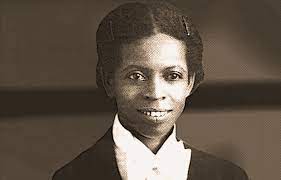
If we go back in time to the 1940s and think how much different it was, at that moment, for black people and women due to a lot of prejudice that still exists nowadays. But it was way worse before. We will understand how fantastic Enedina Alves Marques (1913-1981) was.
She was the first female and black engineer in the country. Despite everything imposed on her, she worked hard, refused to give up, and never accepted the limitations that existed back then. She defied social expectations and chose how her destiny would be; in a society that wanted her to become everything but what she truly wanted.
Daughter of a black couple from the rural exodus after the abolition of slavery (1888), Enedina grew up in Major Domingos Nascimento Sobrinho's house in Curitiba, where her mother worked. He paid for her studies at a private school to keep his daughter some company. Enedina went to school and received educational instruction. But she also accompanied and was prepared by her mother for housework: she sewed, cooked, embroidered, and knitted. Even as a child, she already worked as a nanny and domestic. Enedina was literate at the age of 12, and at school, she was considered an intelligent and applied student.
At 13, she joined the Paraná Education Institute, always working as a maid and nanny in elite homes in Curitiba to pay for her studies. She finished school in 1931 and graduated as a middle school teacher.
Then, in 1932, she started to give classes to children who would be today from 1st to 5th year. She had to handle all types of social and moral prejudice to enroll, in 1940, in a class formed by only white men at university.
Being a woman did not ease things. Women were destined to be housewives, and finding a job was not easy either The options were limited to a teaching position or factory employee, with lower salaries than men. But she kept going and could successfully graduate in Civil Engineering, becoming the first woman to get higher education in Parana and the first black woman engineer in Brazil.
As soon as she graduated, Enedina started working as an engineering assistant at the State Department of Transportation and Public Works. After a while, she was discovered by the then governor Moisés Lupion, and started working at the State Department of Water and Electric Energy of Paraná.
As an engineer, she participated in several important works in the state, such as the Capivari-Cachoeira Power Plant (currently Governador Pedro Viriato Parigot de Souza Power Plant, the largest underground hydroelectric power plant in the south of the country) and the construction of the Paraná State College.
The funny thing about her is she used to wear overalls, and she always carried a gun at her waist, so whenever she wanted to feel respected by others, she would shoot into the air.
After some years of working and consolidating her career, Enedina started to travel around the world between the 1950s and 1960s. In 1958, Major Domingos Nascimento passed away and left her as one of the beneficiaries in his will.
Throughout her life, she earned respect from hundreds of workers, technicians, and engineers. The Memorial to Women was built in Curitiba to celebrate 500 years of Brazil, which honored and immortalized 54 female personalities – among them, Enedina.
There is also the Enedina Alves Marques Black Women’s Institute. A place that fights against racial invisibility that affects black women and men in various sectors.
Enedina did not get married nor have children. She was found dead at the age of 68. As she had no family around, the body took a long time to be found. Even after her death, she continued to inspire people. In 1988, an important street was named after her in Curitiba’s neighborhood. Even after a long time, she is such a great example of persistence and overcoming any obstacles that come into our lives.